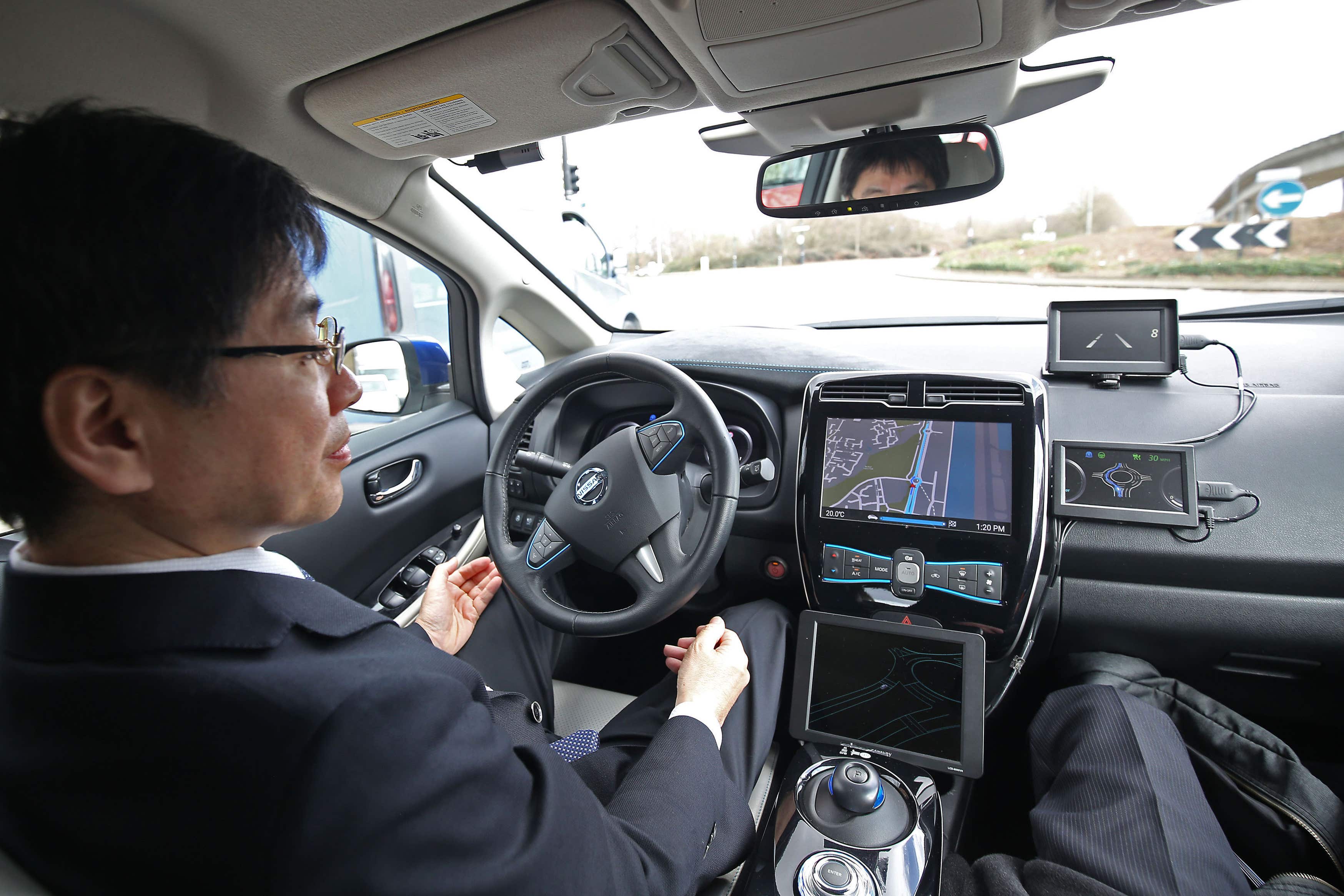No self-driving cars until 2030 if legislation delayed, automotive body warns
The Society of Motor Manufacturers and Traders said the UK can ‘ill afford’ a hold-up in the technology.

The deployment of self-driving cars on UK roads will be delayed by around four years unless legislation is passed before the next general election, an automotive body has warned.
Mike Hawes, chief executive of the Society of Motor Manufacturers and Traders (SMMT), said the UK can “ill afford” a hold-up in the technology being rolled out.
The Automated Vehicles Bill to create a set of laws for using autonomous vehicles was introduced into Parliament in November and will undergo further scrutiny at committee stage from March 19.
Rival markets in the EU and US already have regulatory frameworks in place
Speaking at an SMMT conference in Westminster on Thursday, Mr Hawes said: “Even if the current timetable is met, following the Bill’s second reading in the House of Commons in early March, we are unlikely to see self-driving vehicles on British roads until at least 2026.
“But should the legislation be delayed until after the general election, that date is likely to be nearer to 2030, putting the UK at a significant disadvantage.
“Rival markets in the EU and US already have regulatory frameworks in place and have captured the lead, deploying the tech on public roads now – thus making the need for our own legislation even more urgent.”
The latest date for the next general election is January 28 next year, but there is speculation it could happen as early as May.
Once again, this great industry is adapting and innovating for the future, and British leadership is at the wheel
In a speech at the SMMT event, Transport Secretary Mark Harper said self-driving cars will “usher in a transport revolution”, bringing “safer, more convenient and more accessible travel to more people”.
He went on: “That revolution needs innovative technology which British companies are now designing.
“That, I think, is the big opportunity of the prize for everyone here.
“A real opportunity to make Britain a place where this technology is designed, exported and sold around the world.
“It needs robust legal frameworks, which British lawyers are now writing, and world-leading safety regulation, which just last week, British MPs across the road were debating.
“Once again, this great industry is adapting and innovating for the future, and British leadership is at the wheel.”
He said the “greatest impact” of self-driving cars will be on road safety as “they’re not going to drink and drive, they don’t speed, they don’t get frustrated, they don’t get tired and they don’t ignore the rules of the road”.
He added: “Anyone who’s sceptical about this technology or concerned about it, we should try and find the opportunity for as many people as possible to see in practice.
“I think actually that will go a long way to persuading people who are sceptical.”
Bookmark popover
Removed from bookmarks